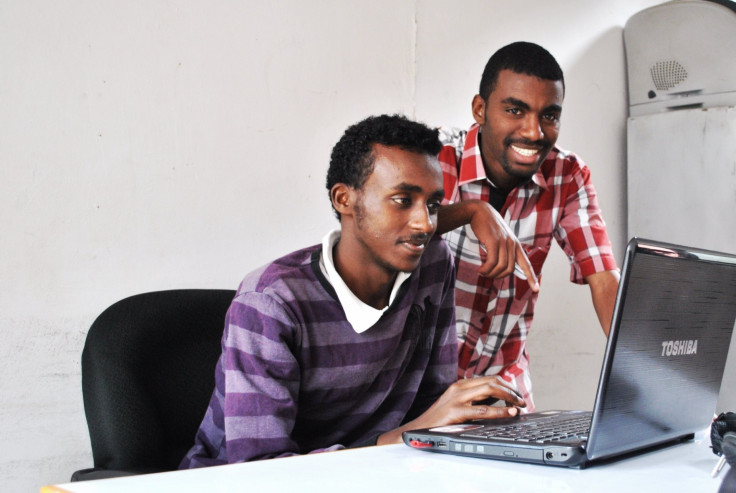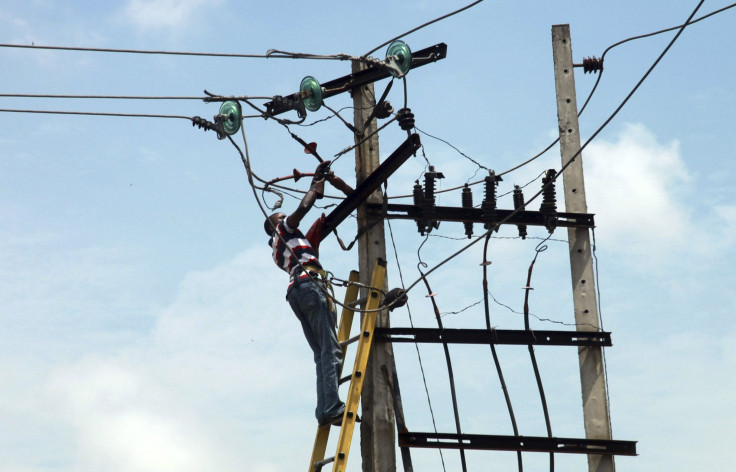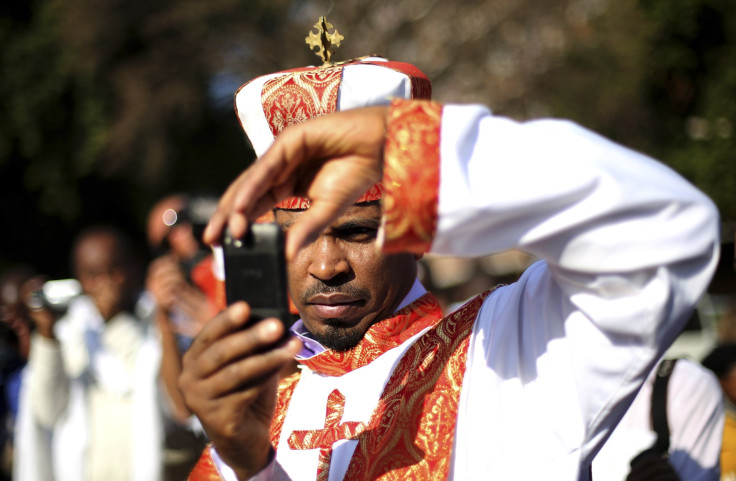Missed Connections: As African Tech Hubs Flourish, Is Ethiopian Government Stifling Telecommunications?

ADDIS ABABA, Ethiopia -- I should have known my Wednesday morning phone interview wouldn't go well.
The mobile reception in my neighborhood had been spotty for days preceding my call with Andrew Rugege, the director of the Africa Regional Office at the International Telecommunications Union. I wanted to talk about information communications technology, or ICT, across the African continent -- and here in Ethiopia particularly -- to learn how developing countries are using technology to encourage economic growth.
But just as Rugege began to speak, the line went dead. I called back, but promptly lost the signal again. By the end of our talk, we'd had to reconnect seven times.
I had first met Rugege at a conference the week before, when he presented the findings of "Measuring the Information Society," ITU's annual report that tracks and compares ICT progress in countries around the world. Speaking in front of journalists, techies and international diplomats in a ballroom at Addis Ababa's Sheraton Hotel, Rugege had a positive prognosis for the continent. "I'm very optimistic about Africa and the potential that ICT holds for us," he said. "What countries on this continent are doing for e-commerce, for e-agriculture, for e-education -- it's phenomenal."
Connectivity across the continent is indeed getting better, and African countries are making some of the biggest leaps in terms of mobile and Internet penetration. But growth is easier when you're starting from a low base -- of the 157 countries surveyed in ITU's ICT Development Index, the worst-ranking 22 are all African.
Ethiopia in particular is lagging behind. Ethio Telecom, the sole telecommunications provider in the country, is owned by the government, which has no plans to open up the sector to private competition. The country came in 40th out of the 46 African nations included in the ITU report and has an Internet penetration rate of less than 2 percent, despite being home to the continent's second-largest population, the biggest economy in East and Central Africa, and a fast-developing capital city that hosts the African Union and a number of international summits.
"Although Ethiopia's ranking is very low, there's a lot of activity in Addis, and these issues happen when you have very steep growth," Rugege said during our intermittent phone conversation. "I know the government is making efforts to alleviate these problems."
Bad for Business
Though ICT access isn't typically as bad in Ethiopia's capital city as it was during our phone call, it's not that good either. Mobile calls often take a couple of tries to connect. Wi-Fi spots are all over town, but they're notoriously unreliable. For casual callers and Web surfers, the situation could be much worse. But for business owners and ICT professionals, these difficulties are beginning to stifle enterprise.

So say the up-and-coming technology experts who work at IceAddis, a technology and collaboration hub based at the Ethiopian Institute of Architecture, Building, Construction and City Development. The compound, just west of the city center, serves as a collaboration space and offers training for entrepreneurs like Abiy, 24, who recently earned his university degree and specializes in animation.
Abiy showed me a video portfolio of his recent work, a professional and diverse collection of animated clips. His website, www.mirtmirt.com, is just getting off the ground, but Abiy worries that Internet problems in Addis Ababa will make it hard for him to keep in touch with clients. "I'm working on a new style of animation to fit the Ethiopian identity," he said. "But the connection can be a headache for us. My customers will need me to be online all the time, but if the Internet is down, I can't do that."
Markos Lemma, 29, a co-founder of IceAddis, has been facing this problem since the hub opened in May 2011. "The telecom sector is really taking the whole business sector down -- especially the startup scene," he said, adding that not even his organization is immune. "Sometimes we will not have Internet running for a couple of weeks," he said. "In a hub like this, a lot of people come just for the Internet, so part of our marketing strategy was to offer a reliable Internet connection. But we stopped saying that, because we cannot keep the promise anymore."
That puts Addis Ababa at a disadvantage compared with other fast-growing hubs like Accra, Ghana; Nairobi, Kenya, and Lagos, Nigeria. Rugege notes that all of those countries boast coastlines, which make it easier to increase bandwidth via undersea cables. But they also allow for varying degrees of private competition, something the Ethiopian government refuses to accommodate.
"It's a matter of policy," said government spokesman Shimeles Kemal in a phone interview. "The telecommunication system is not yet privatized, and there is no indication that this will happen. Privatization is not the solution. The problem stems from technical issues, and the government is trying its very best to improve the quality of service and the connectivity."
A Question of Priorities
Some of the most reliable Internet access in Addis Ababa can be found at luxury hotels. It's not cheap, but it's never slow. It was at one of these Wi-Fi hotspots that I met with government spokesman Getachew Reda, who explained that some of Ethiopia's Internet problems have to do with the pursuit of broad-based growth; Ethio Telecom cannot focus on Addis Ababa alone at the expense of rural telecom development.
"The government's primary focus recently has been on the expansion of infrastructure," he said. "We now have 15,000 kilometers of fiber optic cables throughout the country. Many countries in Africa have fast connectivity, but this connectivity is mostly limited to urban corridors where most of the business takes place. But now that Ethiopia has most of that infrastructure in place, we will now shift to improving services. Fast connectivity will come."
Ethiopia has seen incredible economic growth in recent years -- averaging 10.6 percent GDP expansion over the past decade -- and has the world's third-highest public investment rate and its sixth-lowest private investment rate. This state-driven model has placed a high priority on physical infrastructure projects like roads, sewage systems and housing. National savings are dwindling, and there's still along way to go; about one-third of the population lives below the poverty line, and about 85 percent of Ethiopians work in agriculture, much of it subsistence.

In that context, the argument could be made that it is sensible for telecommunications to take a back seat -- but Internet penetration outside of Addis Ababa has not been neglected entirely. "The development focus in Ethiopia has been getting rural areas to participate in the ICT sector; they have connected their education sector through SchoolNet and their local governments through WoredaNet," Rugege said, referring to two nationwide programs that aim to use ICT to improve education and local government connectivity for far-flung communities.
The government also argues that state ownership of Ethio Telecom provides an indispensable source of revenue; Prime Minister Hailemariam Desalegn told Reuters last month that it brings in up to 600 billion birr, or $318 million, annually. Those monies go to fund major infrastructure projects, like the railway being constructed to connect Addis Ababa with Djibouti, which would improve trade logistics by giving landlocked Ethiopia simpler access to its main seaport. Ethiopia lost its coastline when Eritrea became independent in 1991.
Critics of the government's telecommunications policy argue that privatization would allow for competition and improvement in services, but the administration remains adamant about handling problems on its own.
"Now that we have infrastructure, improving the quality will only require more technical efficiency -- a tweak here, a tweak there," Getachew said. He acknowledged that mobile phone and Internet users are currently constrained by high demand that squeezes bandwidth, but pointed to a recent $1.6 million deal split between two Chinese companies, Huawei and ZTE, which will boost broadband accessibility and unveil 4G service in the capital city. "These projects will improve the number of Internet users throughout the country and upgrade the quality of service in Addis Ababa," he said.
Slow Upgrade
In the meantime, residents of Ethiopia's capital continue to criticize the pace of progress in one of Africa fastest-growing urban hubs. There is a sense that Ethiopia is falling behind, observed Markos of IceAddis, who believes it is keeping his organization from living up to its full potential.
"There are hundreds of hubs like this all over Africa, and they always provide reliable Internet because they have a reliable Internet platform," Markos said. "But that's something we cannot give."
The Ethiopian government is no stranger to complaints like these, but remains willing to keep its telecommunications industry out of private hands indefinitely. Whether the quality of Internet services can live up to its infrastructure investment remains to be seen.
"I'm sure it'll get better," said Rugege after I called him back a seventh time to apologize for our connectivity problem. "I'm sure they're aware of--," he added, just as the line died one last time.

© Copyright IBTimes 2024. All rights reserved.
Join the Discussion






















